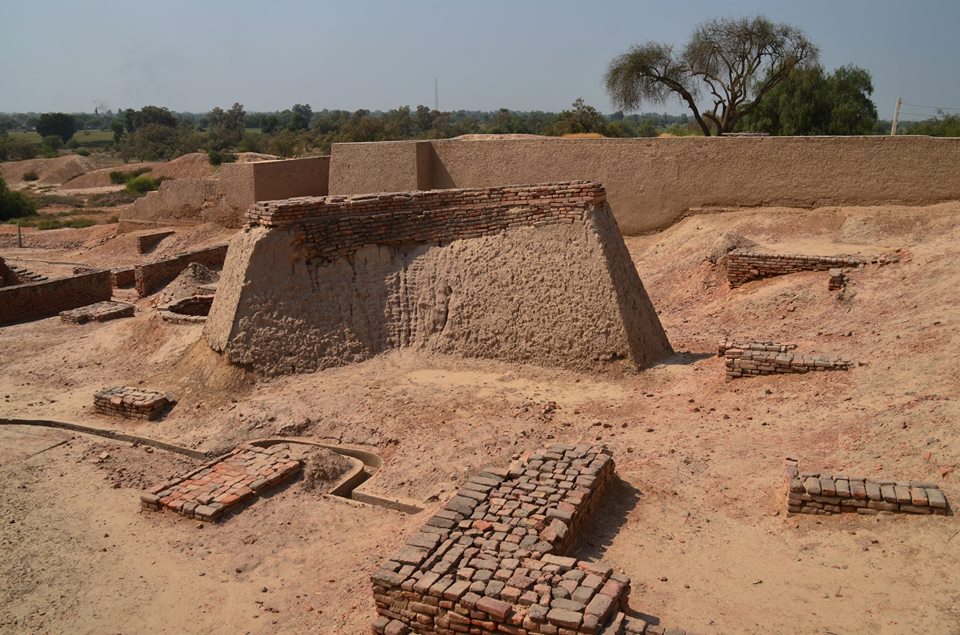Call one of our experts to discuss your next holiday with Vertical Explorers +92 (0)31 555 444 34


Harappa
Unearth the treasures of antiquity in Harappa, one of the most significant archaeological sites of the ancient Indus Valley Civilization. Immerse yourself in the rich history and cultural heritage of this ancient city as you explore its well-preserved ruins and artifacts.
Location: Located in the Punjab province of Pakistan, Harappa sits along the banks of the Ravi River, offering a picturesque backdrop for history enthusiasts and curious travelers alike.
History: Dating back over 5,000 years, Harappa thrived as a major urban center of the Indus Valley Civilization, flourishing between 2600 BCE and 1900 BCE. This ancient civilization is renowned for its advanced urban planning, sophisticated drainage systems, and intricate craftsmanship.
Harappa stands as a testament to the marvels of ancient civilization, providing invaluable insights into the history and culture of the Indus Valley Civilization. Dating back to approximately 2600 BCE, Harappa was one of the major urban centers of this ancient civilization, flourishing for over 700 years before its decline around 1900 BCE.
Foundation and Growth: Founded on the fertile plains of the Indus River in present-day Pakistan, Harappa thrived as a hub of trade, commerce, and culture. Its strategic location along the river facilitated trade networks that stretched across the region, connecting Harappa with distant lands.
Urban Planning and Architecture: Harappa boasted remarkable urban planning and architectural achievements, showcasing advanced engineering and city-building techniques. The city was meticulously laid out in a grid pattern, with well-defined streets, alleys, and drainage systems. Its sophisticated infrastructure included public baths, granaries, and multi-story houses constructed from baked bricks.
Economy and Trade: The economy of Harappa was driven by agriculture, with the fertile lands of the Indus River Valley supporting the cultivation of wheat, barley, and other crops. The city was also a center for craft production, with artisans skilled in pottery-making, metallurgy, and textile weaving. Trade flourished, with Harappa serving as a vital link in the exchange of goods and commodities with neighboring regions.
Social Structure and Governance: The society of Harappa was characterized by a complex social structure, with evidence suggesting the presence of a hierarchical system of governance and administration. Archaeological findings indicate the existence of a ruling elite class, along with skilled craftsmen, merchants, and laborers. The city’s governance was likely centralized, with rulers overseeing urban planning, resource allocation, and trade regulation.
Decline and Legacy: The decline of Harappa and the broader Indus Valley Civilization remains shrouded in mystery. Factors such as environmental changes, natural disasters, and societal upheaval have been proposed as possible causes. By around 1900 BCE, Harappa and other cities of the civilization began to decline, eventually leading to their abandonment.
Archaeological Excavations and Discoveries: The rediscovery of Harappa in the 19th century sparked widespread interest in the Indus Valley Civilization. Extensive archaeological excavations conducted at the site unearthed a wealth of artifacts, including pottery, seals, figurines, and inscriptions. These discoveries have provided valuable insights into the cultural, economic, and technological achievements of ancient Harappan society.
Legacy and Significance: Harappa holds immense significance as one of the earliest urban centers of human civilization. Its legacy extends beyond its ancient ruins, serving as a symbol of human ingenuity, resilience, and cultural innovation. The study of Harappa continues to captivate scholars, archaeologists, and enthusiasts alike, offering a window into the complexities of ancient life and the enduring legacy of the past.
Archaeological Discoveries: Embark on a journey through time as you witness the remarkable excavations at Harappa. Marvel at the well-preserved remains of the city’s structures, including fortified citadels, granaries, and residential complexes. Admire the exquisite pottery, jewelry, seals, and figurines unearthed from the ruins, providing valuable insights into the daily life, trade, and culture of ancient Harappan society.
Highlights:
Visitor Information:
Plan Your Visit: Plan your visit to Harappa and embark on a captivating journey through time to uncover the mysteries of this ancient civilization. Whether you’re a history buff, a cultural enthusiast, or simply a curious traveler, Harappa promises an unforgettable experience that will leave you in awe of its enduring legacy.
Click on Map to open
We’ll plan your trip around your specific interests, tastes and preferences, providing helpful tips and honest advice based on first-hand knowledge of the destination.
Our expert locally based guides are hand-picked to provide a genuine experience, bringing your destination to life with care and passion.
Our trips are designed with responsible travel principles that prioritise travel experiences that are both good for you and good for the planet.
We are 100% locals & created our tours by building meaningful relationships with local communities, directly benefiting the people and places we visit.
Join a small group of like-minded travellers that, like you, are eager to safely and confidently experience all the things that make our world worth exploring.
Pack those bags and don't break a sweat because we guarantee every single one of our departures. As long as it's safe, you're going!
No matter the Travel types, our tours balance well-planned itineraries with the flexibility to do your own thing and make the experience your own.
We ensure a hassle-free and safe experience with reliable local support. We provide you with a travel concierge dedicated to helping you 24/7 during your trip.